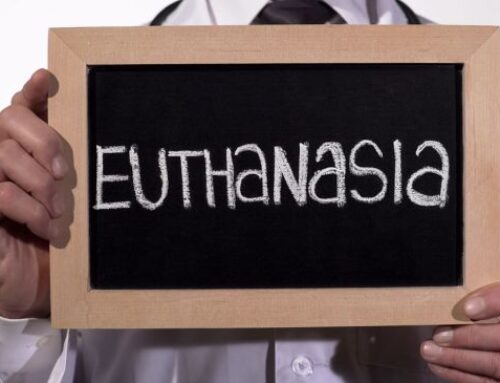Dina Kok
The Interim
According to a recent study published in The Lancet, a British medical journal, over half of the critically ill babies and infants who died in the mostly Dutch region of Flanders in Belgium had their lives ended by euthanasia.
The study reported that Belgian doctors were directly responsible for 143 cases out of a total 253 newborn deaths, or approximately 57 per cent of the total deaths of children in their first year. The report collected statistics from the period August 1999 to July 2000 and discovered that pediatricians who responded to the survey conceded they had made “end-of-life” decisions in these critical cases. In fact, the study also revealed that three out of four doctors would be willing to take action that they knew could result in a child’s death.
The most common method of infant euthanasia disclosed was the withholding of treatment, because “physicians believed the baby had no real chance of survival or the baby had no chance of a ‘bearable future.’” It was also found that opiate pain killers were used in 40 “critical cases” to shorten the life expectancy of suspected terminally ill newborns and that in a total of 17 cases, a lethal dose or lethal drugs were administered.
Administering lethal doses of painkillers to minors is considered illegal under Belgian law. In 2002, Belgium enacted euthanasia legislation that supporters insisted would adequately regulate the lethal practice.
Some of the doctors surveyed attempted to justify their practice of killing children by claiming that their intent was to make the babies more comfortable. Dr. Gunnar Naulaers, a neonatologist at the Catholic University Hospital in Leuven, told The Telegraph that he and his colleagues “arguably hastened deaths, but only as a side-effect of easing severe pain in critically ill infants.”
The Telegraph also reported in its account concerning the Lancet study that “four-fifths of the doctors who completed an ‘attitudinal survey’ agreed that ‘the task of the physician sometimes involves the prevention of unnecessary suffering by hastening death.’”
Belgium has quickly followed in the footsteps of the Netherlands. The Dutch government was the first to legalize euthanasia for terminally ill people in 1995. Recently, the Dutch have begun to tackle an even thornier ethical dilemma – what to do when doctors say it is best to end the lives of infants, the mentally handicapped or the demented who are not terminally ill.
A local U.K. news source stated that within Holland, the “mercy killing” of children is allowed, but only with the consent of a parent or guardian.
The Royal Dutch Medical Association is proposing guidelines for the legal extinction of the life of newborn infants. Proponents of infant euthanasia argue that since the practice already occurs nationwide, a national protocol should be enacted. As well, many supporters of infant euthanasia are seeking to protect the doctors against charges of committing murder. LifeSiteNews.com reported in early March that infant euthanasia pioneers are arguing that a legal framework is necessary to “regulate the practice and make it safer.”
A well-known advocate of euthanasia is Dr. Eduard Verhagen, a pediatrician at Groningen University Medical Centre. Verhagen was influential in creating the “Groningen Protocol,” a list of standards for performing and reporting euthanasia of newborns with serious or incurable deformities. According to a WorldNetDaily report, under the protocol, Verhagen has boasted of killing four seriously deformed babies within the last two years.
Verhagen then commented that doctors “are trained to save the life of a child, but with these children, the suffering can only be stopped by ending their lives. It takes courage to do that.” Last year, Verhagen attempted to sway the Dutch government to legalize the practice of infant euthanasia.
A spokesman for Wim Eijk, the Roman Catholic bishop in Groningen said that infant euthanasia “is crossing a boundary thus far prohibited in every code. Euthanasia for children in circumstances where it is not possible to seek or secure the consent of those affected. It is a slippery slope that will give doctors the right to impose life or death, and will lead to an argument that it should be extended to all.”
Cry for Life, a Dutch pro-life organization, made similar comments. The chairman, Bert Dorenbos said, “It’s another step on the slippery slope of Holland’s euthanasia and abortion programs.” Dorenbos also remarked that formalizing such a practice would be a preliminary step to legalizing involuntary euthanasia.
Despite such pressure to legalize infant euthanasia in the Netherlands, attempts to change the law in Belgium are being met with mixed reactions from pediatricians, with some supporting a law regulating euthanasia and others favouring a strict ban. Dr. Naulaers even commented: “We are a bit frightened about making a law. Where do you put your lines? What is a very handicapped baby and who decides? If you say the parents, what if they are divorced? The patient cannot decide. It is a baby.”




